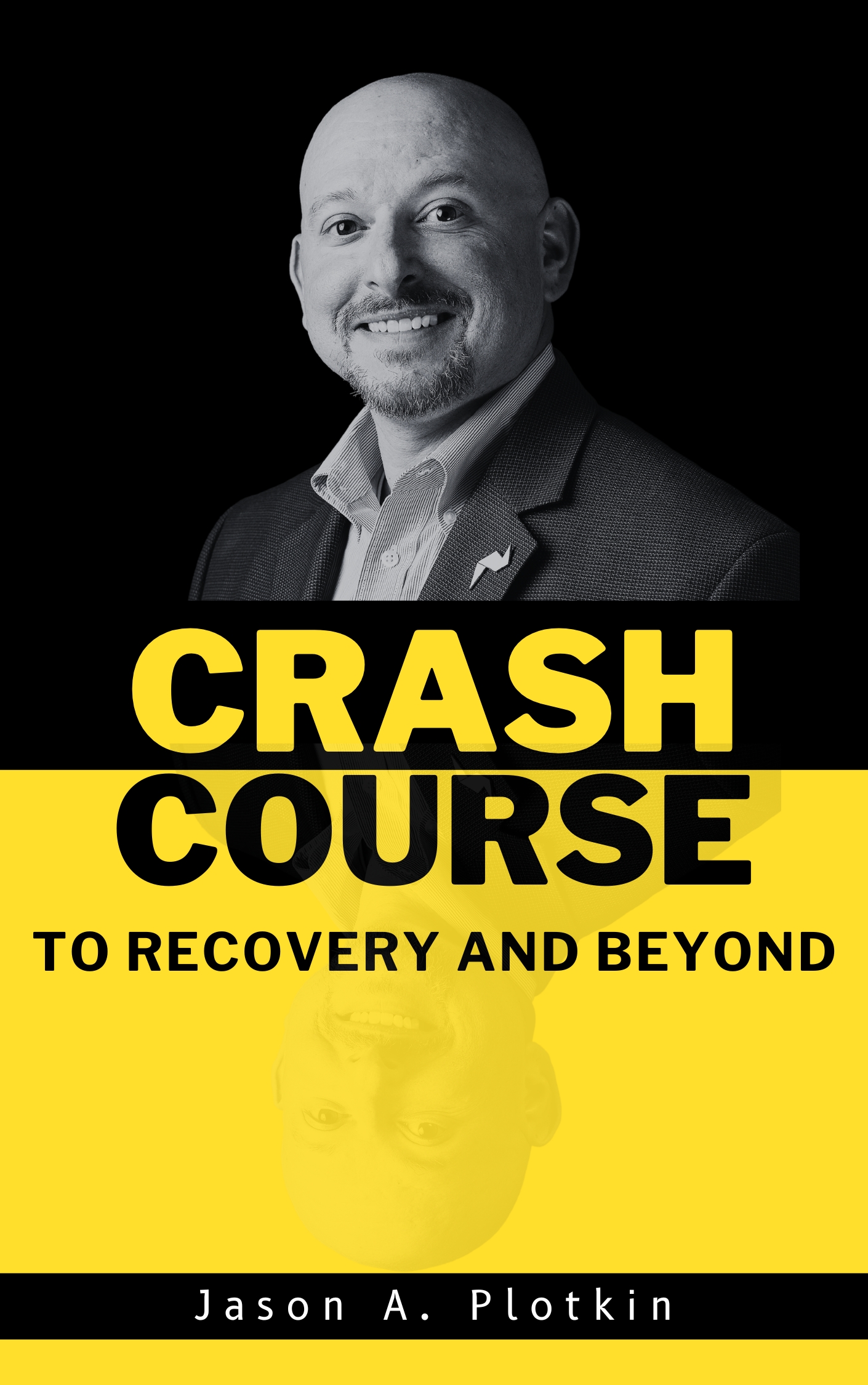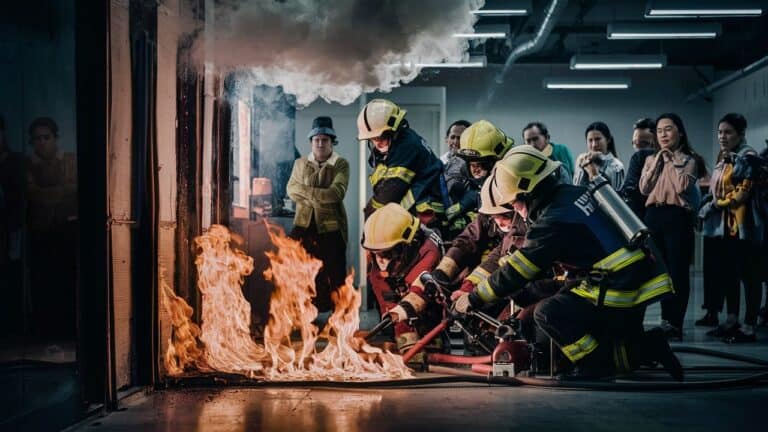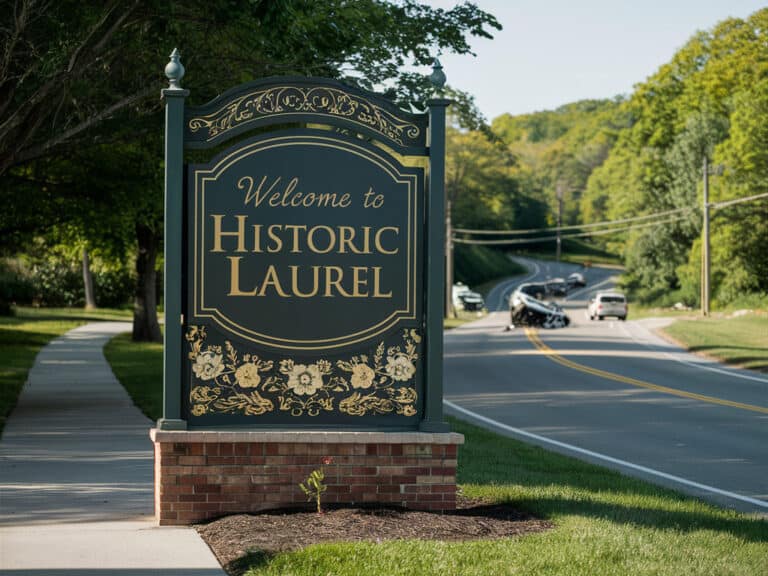The road can change lives in more ways than one, especially when it comes to **PTSD and car accidents**. A sudden crash not only leaves behind bent metal but can also imprint lasting scars on the mind. This post dives into the unseen aftermath of auto accidents—post-traumatic stress disorder (PTSD). We’ll unpack how this condition unfolds after such traumatic events, highlighting symptoms you might recognize and effective treatments that offer a beacon of hope.
Diving into Maryland’s distinctive support for PTSD healing and the legal paths available to those who’ve endured, we aim to shed light on avenues towards recovery. Diving into the journey of recovery, you’ll soon be equipped with insights on early detection methods and building a network of community support to steer through post-accident challenges with fortitude. PTSD and car accidents are routinely connected.
Table Of Contents:
- Understanding PTSD and Car Accidents in Maryland
- Symptoms and Diagnosis of PTSD from Car Accidents
- Effective Treatments for MVA-Related PTSD
- The Role of Early Intervention in Preventing Chronic PTSD
- Legal Considerations for Car Accident Survivors with PTSD in Maryland
- Support Systems and Resources Available in Maryland
- Coping Strategies for Dealing with Trauma After a Car Accident
- FAQs in Relation to Ptsd and Car Accidents
- Conclusion
Understanding PTSD and Car Accidents in Maryland
The Psychological Impact of Car Accidents
Imagine the sudden jolt, the screech of tires, and then silence. A car accident unfolds in seconds but can leave a lasting imprint on your mind. In Maryland, where roads are bustling arteries connecting lives and livelihoods, motor vehicle collisions aren’t just statistics; they’re traumatic events that often lead to post-traumatic stress disorder (PTSD). Grasping the reality that PTSD transcends beyond the battlefield and can emerge from everyday incidents is essential. The American Psychological Association has found that car accidents are the leading cause of PTSD among civilians.
The mind often reacts to car crashes with a range of signs, from unbidden memories that keep replaying the event, steering clear of anything that brings back those moments, shifts in emotion like heightened annoyance or despair, to always feeling tense. For some individuals in Maryland experiencing these symptoms after a crash means grappling with mva-related PTSD —a condition tied specifically to motor vehicle accidents.
If you’ve been involved in an auto incident and notice these signs lingering for more than a month or severely impacting your life it might be time to seek help from professionals who understand what you’re going through. To get started on this journey, Mayo Clinic offers an insightful overview of PTSD, providing valuable information for anyone looking for answers.
Maryland’s Road to Recovery
In Maryland, overcoming PTSD after a car accident involves acknowledging both emotional scars left by trauma survivors and anxiety disorders stemming from such incidents. Recognizing one needs support is the first step towards healing. With a variety of resources available, ranging from cognitive therapy to prolonged exposure behavioral therapy, avenues for recovery open wide. Additionally, discovering a network of individuals who have endured akin trials proves to be an indispensable asset throughout the journey towards recuperation. There’s a high likelihood of developing coping strategies and emotional resilience to learn to manage symptoms effectively. Attending group meetings provides a unique opportunity to voice emotions and forge bonds with other survivors, all while receiving insights from seasoned professionals.
A critical part of navigating the path to recovery is understanding the legal considerations unique to the state. For instance, seeking compensation for injuries sustained during a collision could alleviate the financial burdens associated with treatment. However, ensuring rightful claims are compensated requires the expertise of a knowledgeable law firm specializing in personal injury cases, like Pinder Plotkin, who are familiar with the intricacies of local laws surrounding car crash PTSD compensation. This combination of medical intervention and legal advice sets a solid foundation for rebuilding a sense of normalcy following a devastating event.
Car accidents in Maryland can lead to PTSD, impacting mental health with symptoms like intrusive thoughts and mood changes. Acknowledging the need for help starts the healing journey, utilizing therapies and legal support to rebuild normalcy.
Symptoms and Diagnosis of PTSD from Car Accidents
After a car accident, the road to recovery isn’t just about healing physical wounds. Mental health takes a hit too, especially with post-traumatic stress disorder (PTSD) lurking in the shadows. Understanding the nuances of PTSD, its symptoms, and diagnosis can shine a light on this often invisible injury.
Intrusive Memories
The first stop on our journey through understanding PTSD after a car accident is recognizing intrusive memories. These aren’t your ordinary trip-down-memory-lane flashbacks; they’re vivid, unwanted recollections of the trauma that can pop up without warning. People experience these intense replays alongside distressing dreams or nightmares related to the crash. It’s like having an unwelcome guest in your mind that doesn’t know when to leave.
Mood changes are another telltale sign someone might be wrestling with PTSD following an auto incident. Suddenly finding yourself feeling numb or detached from loved ones? Experiencing overwhelming guilt or shame even though it wasn’t your fault? Experiencing these changes in your emotions might be a sign that there are deeper problems requiring your focus.
Avoidance
Now let’s talk avoidance—a classic move for anyone trying to dodge discomfort but particularly pronounced in those dealing with post-car crash stress disorders. Avoidance behaviors manifest as steering clear of places, activities, or people reminding them of the traumatic event—essentially creating bubble-wrap barriers against potential triggers.
Mood Changes
Last but certainly not least are mood changes—those unpredictable emotional rollercoasters that seem out of sync with reality. Individuals may find themselves struggling to maintain interest in previously enjoyed activities or feeling hopeless about the future—an internal storm cloud blocking out rays of joy and optimism.
Recognizing these symptoms early can pave the way for timely intervention and treatment options such as cognitive therapy which has been proven effective by both empirical findings and clinical observations at reducing symptoms among MVA survivors. A thorough evaluation by mental health professionals will confirm whether these experiences align with diagnostic criteria for PTSD—which surprisingly can develop shortly after an incident or emerge months down line—but knowing what signs look out makes all difference getting help you need sooner rather than later.
Effective Treatments for MVA-Related PTSD
If you’ve ever felt like your mind keeps replaying a car crash scene or you can’t get into a vehicle without feeling anxious, know that these are common symptoms of post-traumatic stress disorder (PTSD) after motor vehicle accidents (MVAs). But there’s good news. Effective treatments have been identified to help manage and overcome this condition.
Cognitive Behavioral Therapy (CBT)
Cognitive Behavioral Therapy has shown promising results in treating PTSD related to MVAs. It works by changing the negative thought patterns that contribute to anxiety and fear. By reinterpreting their traumatic experiences, this form of therapy empowers people to better manage the unwelcome thoughts that often haunt them. A significant point worth mentioning is that brief CBT sessions have greatly reduced the likelihood of developing chronic PTSD following an accident, as noted in research published on NCBI.
Exposure Therapy
In exposure therapy, individuals gradually face their fears in a controlled environment under the guidance of a therapist. Through this technique, individuals bravely tackle their haunting recollections in a secure setting until such moments cease to evoke profound emotional reactions.
Eye Movement Desensitization and Reprocessing (EMDR)
Through this novel method, individuals concentrate on their painful recollections while a therapist provides alternating sensory feedback, such as lateral eye movements or rhythmic hand tapping. EMDR helps process these troubling images and emotions linked to the trauma so they become less disturbing over time.
All three methods—CBT, exposure therapy, and EMDR—are not only backed by empirical findings but also endorsed by reputable organizations such as the American Psychological Association for treating PTSD efficiently.
The journey towards recovery may seem daunting at first glance; however, with proper treatment guided by professionals along with strong social support systems in place—overcoming MVA-related PTSD becomes achievable step-by-step. For further information about diagnosing and treating post-traumatic stress disorder including approaches mentioned here visit Mayo Clinic – Diagnosis & Treatment Overview.
Feeling stuck in a loop after a car crash? You’re not alone. Dive into treatments like CBT, exposure therapy, and EMDR to kickstart your journey to recovery from PTSD caused by motor vehicle accidents.
The Role of Early Intervention in Preventing Chronic PTSD
Car accidents are not just a momentary scare; they can leave long-lasting psychological scars. In Maryland, the aftermath of such traumatic events often leads to Post-Traumatic Stress Disorder (PTSD). But there’s good news: early intervention strategies like Cognitive Behavioral Therapy (CBT) have shown promise in preventing chronic PTSD among motor vehicle accident (MVA) survivors.
Understanding Acute Stress Disorder and Its Transition to PTSD
In the immediate wake of a car crash, individuals may experience acute stress disorder. Although this ailment mirrors PTSD in numerous ways, its duration is typically brief. Without timely intervention, however, it has a high likelihood of evolving into full-blown chronic PTSD. Here lies the critical role of early detection and treatment.
Initiating therapy promptly can markedly shift the course of this progression. Particularly, Cognitive Behavioral Therapy shines in its capacity to tackle MVA-induced trauma through targeting the pervasive thoughts and evasive actions that hallmark both immediate stress conditions and potential long-term PTSD.
Navigating Treatment Options for Optimal Outcomes
Treatment modalities extend beyond traditional therapy sessions. Exposure therapy is another tool proven beneficial for those haunted by memories of their accident; meanwhile Eye Movement Desensitization and Reprocessing (EMDR), offers an alternative route towards healing by helping patients process these traumas differently.
An important caveat to note is that single-session debriefings post-accident do not prevent developing chronic conditions as one might hope according to empirical findings. Hence focusing on structured therapies over time yields better results than immediate but fleeting support attempts following trauma exposure.
Leveraging Support Systems within Maryland’s Community
Beyond individual therapy sessions lie community resources ripe for leveraging—group therapy options abound throughout Maryland offering emotional support from peers who understand firsthand what it means to survive a traumatic event like a car crash. These group settings foster connections while providing practical coping mechanisms tailored specifically toward navigating life after such incidents without succumbing fully under their weight emotionally or psychologically—a crucial step on any survivor’s road back towards mental well-being. Diving into these support networks profoundly enhances the journey toward healing, offering not only mechanisms for coping but also instilling a deep sense of community and empathy essential in the recovery phase.
Jump on early intervention like CBT to dodge chronic PTSD after a car crash. Remember, quick action and the right therapy can change the game.
Legal Considerations for Car Accident Survivors with PTSD in Maryland
If you’ve survived a car accident in Maryland and are struggling with PTSD, knowing your legal rights is crucial. Navigating through this isn’t solely a quest for financial reparation; it’s an essential stride towards fairness and backing in your path to healing.
Car crash PTSD compensation plays a pivotal role for survivors. It’s not merely financial relief but recognition of the unseen scars left by such traumatic events. In Maryland, if another party’s negligence contributed to the accident that led to your condition, you might be entitled to damages beyond immediate medical costs.
The Psychological Impact of Car Accidents
Traumatic stress following a motor vehicle collision can profoundly affect one’s life. Intrusive reflections to drastic shifts in emotion highlight the critical need for prompt recognition and intervention. These emotional hurdles aren’t invisible wounds—they’re real challenges that deserve acknowledgment and care.
In light of this reality, seeking legal advice early ensures that individuals suffering from post-traumatic stress disorder due to car accidents understand their options within Maryland’s jurisdiction thoroughly.
Maryland’s Road to Recovery
Navigating the aftermath of an auto accident while dealing with PTSD symptoms requires more than just medical intervention—it demands robust social support systems too. Gratefully, avenues such as collective counseling provide comfort and empathy within a community of individuals who have navigated comparable adversities. Mayo Clinic provides an overview on PTSD, shedding light on various aspects critical for anyone embarking on this challenging road towards healing.
Finding comprehensive ptsd treatment options including cognitive behavioral therapy or prolonged exposure techniques could make all the difference in reclaiming control over one’s life after such a traumatic event. Understanding these avenues—not only through clinical observations but also empirical findings—underscores why pursuing rightful compensation isn’t just beneficial; it’s necessary for facilitating access to these vital services.
Support Systems and Resources Available in Maryland
In the wake of a car accident, individuals often find themselves grappling with more than just physical injuries. The mental aftermath can be equally debilitating, especially when it spirals into post-traumatic stress disorder (PTSD). But there’s good news for Maryland residents: you’re not alone on this journey. A variety of support systems and resources are at your fingertips to help navigate the challenging waters of recovery.
Group Therapy Sessions
Maryland boasts a strong network of group therapy sessions specifically designed for MVA survivors. In these assemblies, folks find a sanctuary to exchange their narratives and survival techniques, all under the watchful eye of experts. Talking about your journey in a circle of peers who grasp the depth of your struggle has proven to markedly ease the burden of PTSD. If you’re on the hunt for these supportive circles, beginning your search at neighborhood hubs or mental wellness facilities might be a smart move.
Apart from offering emotional solace, these sessions also serve as educational hubs where participants learn about managing intrusive thoughts and mood changes – common symptoms following an auto accident trauma.
Mental Health Resources
Maryland boasts a diverse spectrum of psychological support options, meticulously designed to cater to those recovering from traumatic experiences. From one-on-one counseling to innovative treatments like cognitive behavioral therapy (CBT) or exposure therapy, Maryland’s approach is all-encompassing. Facilities across Baltimore, Parkville, Laurel, Ellicott City, and Bel Air stand ready to assist anyone struggling with PTSD after a motor vehicle collision.
To get started on this healing path, Mayo Clinic offers an insightful overview of PTSD that includes diagnostic criteria and treatment options available nationally which resonate well within our state’s borders too.
Community Services That Care
Last but certainly not least is the heartwarming presence of community services throughout Maryland aimed at providing social support for accident trauma sufferers – reinforcing how important it is never to underestimate the power of human connection during times of distress. These groups provide a range of support, from aiding with everyday tasks after an accident to organizing rides for doctor’s visits. Beyond immediate assistance, such entities foster long-term resilience among MVA survivors striving towards full recovery.
Coping Strategies for Dealing with Trauma After a Car Accident
Car accidents can leave scars not just on the body but also on the mind. If you’re navigating through this tough time, remember, developing coping strategies is essential for emotional recovery post-accident.
Traumatic events like car crashes often lead to PTSD. Dealing with this goes beyond mere fear; it involves a relentless struggle against unwelcome thoughts and shifts in emotion, potentially throwing your daily existence into chaos. Yet, amidst the turmoil, remedies like cognitive restructuring, gradual confrontation exercises, and EMDR offer a beacon of hope for those ensnared by the shadows of their memories. Studies have found brief CBT particularly helpful in reducing the likelihood of developing chronic PTSD after an MVA.
Beyond professional help, let’s talk practical steps you can take every day to ease your journey back to normalcy:
- Lean into social support: Surround yourself with loved ones or connect with support groups where you can share experiences and feelings without judgment.
- Maintain a routine: As much as possible, keep up with daily activities. Reestablishing a daily rhythm can act as an anchor, restoring a touch of the familiar amidst chaos.
- Limited exposure to triggers: While avoidance isn’t always healthy, limiting exposure to things that intensely trigger memories of the accident can be beneficial initially.
- Crash Course: To Recovery and Beyond: Jason Plotkin talks about the serious auto accidents he has survived. Available here
The Mayo Clinic offers further insights into understanding PTSD symptoms better so individuals understand what they might be experiencing post-car crash trauma. Moreover, learning more about how early intervention plays a role could prevent long-term psychological effects according to empirical findings from various studies.
If legal worries due to your accident are adding stress, knowing there are resources out there like Pinder Plotkin who specialize in assisting Maryland residents navigate these turbulent waters may offer some solace. Remembering that group therapy has shown positive outcomes among MVA survivors might encourage one towards seeking community-based solutions too.
Healing from a car accident involves more than just physical recovery; it’s crucial to tackle the mental scars too. Dive into coping strategies like therapy, maintaining routines, and leaning on support groups. Remember, early action can help prevent long-term trauma.
FAQs in Relation to Ptsd and Car Accidents
How do you get over a car accident with PTSD?
To move past a car crash with PTSD, therapy is key. Techniques like CBT and EMDR can be game-changers. Lean on support groups too.
What is the psychological trauma after a car accident?
It’s feeling stuck in that moment of terror, reliving it through flashbacks or nightmares, dodging reminders, and wrestling with anxiety or depression.
How long does it take to mentally recover from a car accident?
Mental recovery varies widely—some bounce back in weeks; others might need years. It’s all about personal pace and getting the right help.
How to find an attorney that has been in a car accident?
Jason Plotkin tells the story of his auto accidents in Crash Course: To Recovery and Beyond.
How common is PTSD in car accidents?
A good chunk of folks walk away from crashes carrying PTSD—it’s one of the top non-military triggers for this stress disorder out there.
Conclusion
So, you’ve journeyed through the maze of PTSD and car accidents. You now know that recovery isn’t just possible; it’s within reach. Early intervention can turn the tide against chronic PTSD. Cognitive behavioral therapy acts as a beacon, illuminating the more shadowed trails of recovery.
You discovered Maryland’s unique support systems, ready to embrace those shattered by trauma. Legal advice in Maryland is not just words but a bridge to compensation and peace.
Coping strategies? They’re your armor against intrusive thoughts from that crash scene replaying in your mind.
Let this knowledge empower you. Let these insights guide you from shadow back into sunlight. And let resilience be your compass as you navigate beyond the aftermath of auto accidents towards healing.







